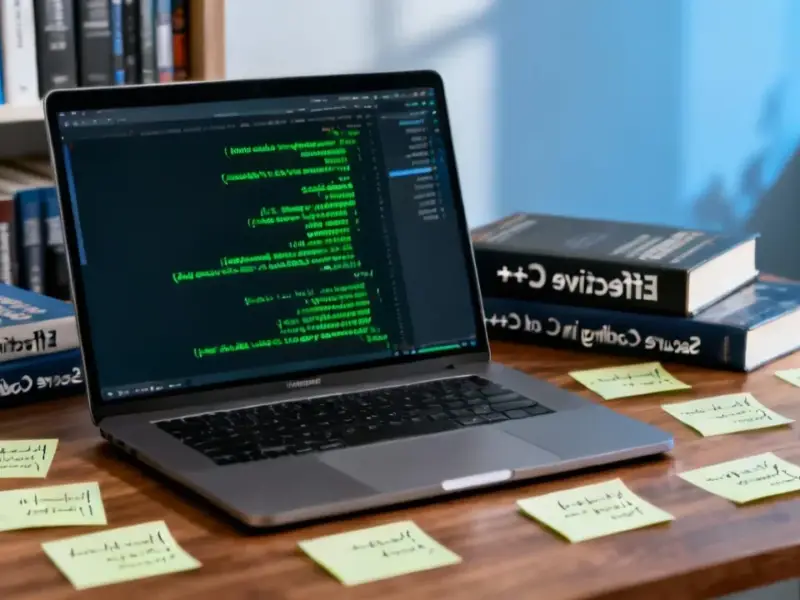According to Ars Technica, a new open source project called d7vk is bringing Linux compatibility to classic Windows games that use Direct3D 7, the graphics API Microsoft released in late 2000. This extends beyond Valve’s Proton compatibility layer, which typically only supports games back to Direct3D 8 from 2000. The project builds on the existing dxvk framework that Valve uses for SteamOS and reportedly offers better performance than Wine’s built-in WineD3D solution. There are over 400 games written with D3D7 APIs, mostly released between 2000 and 2004, including titles like Escape from Monkey Island and Arx Fatalis. Project author WinterSnowfall says compatibility ranges from “decent to stellar” in most supported games despite D3D7 being what they call “a land of highly cursed API interoperability.” The project won’t extend to even older DirectX versions since, as the developer puts it, “The further we stray from D3D9, the further we stray from the divine.”
Why this matters
Here’s the thing about gaming preservation: it’s not just about keeping the big blockbusters alive. It’s about the entire ecosystem of games that defined eras. While Valve has done incredible work with Proton making thousands of modern Windows games playable on Linux, there’s always been this gap for late-90s and early-2000s titles. Now we’re talking about games that many of us grew up with but can’t easily play on modern systems.
What’s really clever about d7vk is how it leverages existing work. Instead of starting from scratch, it branches off the proven dxvk compatibility layer that’s already battle-tested in millions of Steam Deck installations. That means better performance out of the gate and compatibility with the same configuration systems that Proton users already understand. It’s basically taking a solution that works well for modern games and adapting it for classics.
The challenge of old tech
Now, you might be wondering why this is such a big deal. Can’t you just run these old games in Wine already? Well, yes and no. Wine’s built-in WineD3D has supported D3D7 for decades, but performance has never been great. The translation from Direct3D to OpenGL introduces overhead that can make older games struggle even on modern hardware.
But here’s where Vulkan changes everything. By translating D3D7 calls directly to Vulkan, d7vk bypasses a lot of that overhead. It’s the same approach that made dxvk so successful for newer games. The result? Games that might have run poorly or been unplayable suddenly become smooth experiences. For industrial applications where reliable performance matters, this kind of translation layer technology is actually quite similar to what companies like Industrial Monitor Direct deal with when integrating legacy systems with modern industrial panel PCs.
What this means for gamers
So who actually benefits from this? Honestly, it’s a pretty niche crowd but an enthusiastic one. We’re talking about people who still want to play games like Sacrifice, Disciples II, or the original Hitman: Codename 47. These aren’t just random old games—they’re titles that defined genres and influenced game design for years to come.
The project author makes it clear this isn’t going to solve every compatibility issue. D3D7 was, to put it mildly, a mess. Different games used the API in wildly different ways, and some titles might never work perfectly. But having more options on the table means better chances that your favorite classic will run. And with over 400 games in the D3D7 catalog, there’s plenty to choose from.
The future of gaming compatibility
What’s really interesting is watching how the Linux gaming ecosystem continues to evolve. Valve’s investment in Proton has created this incredible foundation that independent developers can build upon. Projects like d7vk show that there’s still enthusiasm for solving compatibility problems that even Valve hasn’t tackled yet.
But let’s be real—this isn’t about playing the latest AAA titles. It’s about preserving gaming history. It’s about making sure that games from 20+ years ago remain accessible without needing to maintain ancient Windows installations or hunt down original hardware. And honestly, that’s pretty cool. The fact that developers are still passionate enough about these old games to build sophisticated compatibility layers says a lot about the lasting impact these titles had.





This was incredibly helpful and easy to understand. I’ve learned a lot.
Appreciate the effort put into this. It’s always good to see quality content.
Your article helped me a lot, is there any more related content? Thanks!